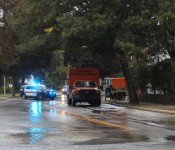Photo: Get your flu shot Wednesday evening.
The final date for residents to receive a flu shot sponsored by the town’s Health Department will be Wednesday, Oct. 21 between 6 p.m. and 8 p.m. at the Temple Beth El auditorium, 2 Concord Ave.
Residents as young as five years old can receive the flu shot.








